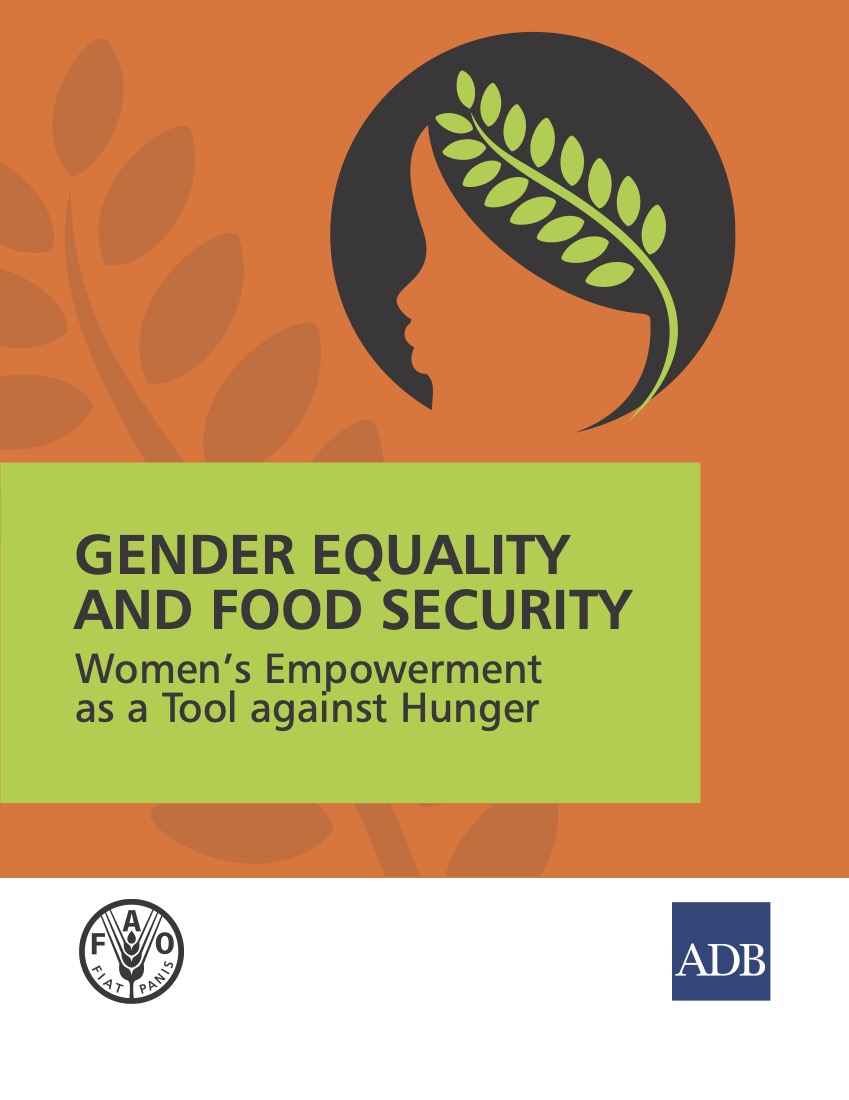Gender equality and food security - women’s empowerment as a tool against hunger
This publication analyzes gender inequalities that constrain women’s roles in agriculture and food production, and in the long run undermine achievement of food and nutrition security in the Asia and Pacific region. It recommends priority interventions that would enhance food and nutrition security in the region by ending gender discrimination and empowering women. It argues for policy reforms to advance gender equality and strengthen country-owned food security strategies.





